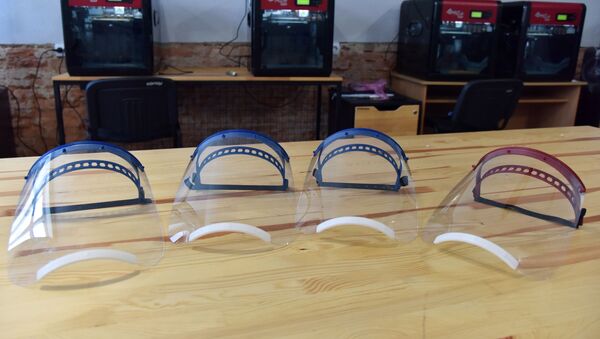Scientists in Japan have proven that face visors are not sufficient in stopping the spread of Covid-19. A supercomputer, Fugaku, at the RIKEN Center for Computational Science in Kobe, Japan has calculated the percentage of droplets escaping the protective facewear.
Almost 100% of airborne droplets of less than 5 micrometres find their way out despite the face shield, according to Fugaku.
Scientists at the RIKEN center said that about half of larger droplets measuring 50 micrometres also get past the plastic face shield, rendering it not completely ineffective for the purpose of stopping the virus.
“Judging from the results of the simulation, unfortunately the effectiveness of face guards in preventing droplets from spreading from an infected person’s mouth is limited compared with masks. This is especially true for small droplets of less than 20 micrometres… At the same time, it somehow works for the droplets larger than 50 micrometres,” team leader Mato Tsubokura told Guardian in an interview.
The official government guidelines in the UK define a face covering as “something which safely covers the nose and mouth.”
“You can buy reusable or single-use face coverings. You may also use a scarf, bandana, religious garment or hand-made cloth covering but these must securely fit round the side of the face,” the government website explains.
In England, people are meant to wear masks in public transport (aeroplanes, trains, trams and buses), taxis, shops and supermarkets among other places.


